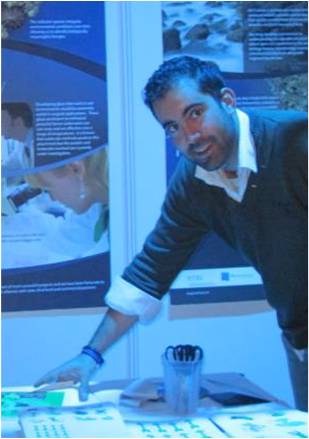
Dr Diogo Gomes recently completed his PhD at NUI Galway. His doctoral research focuses on partnerships between Science Outreach sponsored by Universities and other organizations and Primary Level Science Education in Ireland.
In my last blog, I mentioned the four arguments put forward by the literature for science teaching: utilitarian, economic, cultural and democratic. Today I will focus more on the utilitarian argument.
[click_to_tweet tweet=”Utilitarianism has a long tradition in philosophy. It is defined as a system of ethics according to which the right or wrong of an action should be judged by its consequences. #Edchatie #EducationMatters #STEM” quote=”Utilitarianism has a long tradition in philosophy. It is defined as a system of ethics according to which the right or wrong of an action should be judged by its consequences. “]
Utilitarianism has a long tradition in philosophy. It is defined as a system of ethics according to which the right or wrong of an action should be judged by its consequences. The goal of utilitarian ethics is to promote the greatest happiness for the greatest number. The utilitarian argument for science teaching is that science knowledge is useful in day to day life. As such, science education is important in helping students develop skills and knowledge that are going to be valuable throughout their life.
Several examples can be given of the importance of the utilitarian argument. One is that it is important for people to have an idea of how our body works to help us monitor and preserve our health. A second argument relates to the central importance in our scientific society for people to understand scientific news and reports.
[click_to_tweet tweet=”Many newspapers had headlines such as ‘sausages as big a cancer threat as smoking’. People need to be critical of headlines such as this one and be able to find and understand more reliable sources. If not they will be misled. #Edchatie #Educationmatters” quote=”Many newspapers had headlines such as ‘sausages as big a cancer threat as smoking’. People need to be critical of headlines such as this one and be able to find and understand more reliable sources. If not they will be misled.”]
A recent instance that showcases the importance of being able to analyse science news is the World Health Organization (WHO) report on processed meat. Many newspapers had headlines such as ‘sausages as big a cancer threat as smoking’. People need to be critical of headlines such as this one and be able to find and understand more reliable sources. If not they will be misled. What the report actually states is that eating more than 50 grams per day of processed meat increases the risk of colorectal cancer by 18%, from 0.041% to 0.048%.
To compare bacon with cigarettes is not only scientifically inaccurate but also extremely dishonest. News such as this reveals how there is a strong utilitarian argument for science teaching.
***
Interested in reading more? – Interested in reading more about science education? Check out this piece on the changing face of science at Trinity College Dublin – “Reimagining Science Education at Trinity College Dublin“.
And remember to find us on Twitter @EdMatters and use the hashtag #EducationMatters to keep the conversation going.